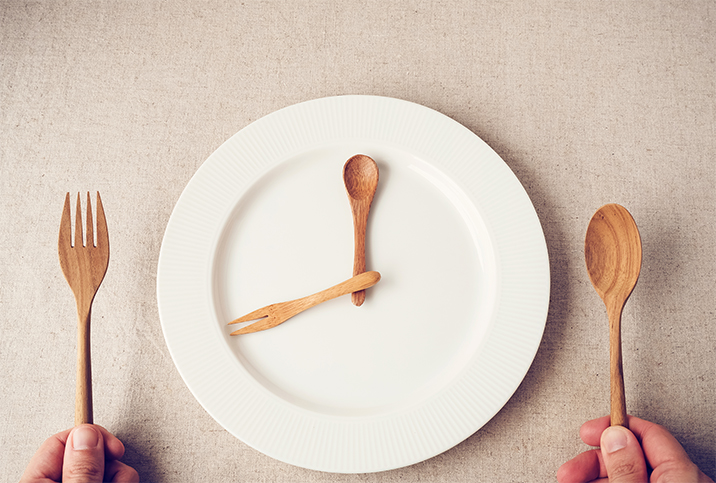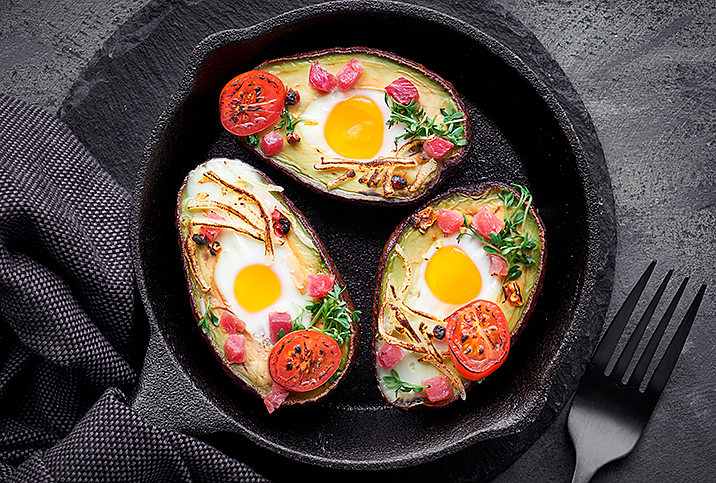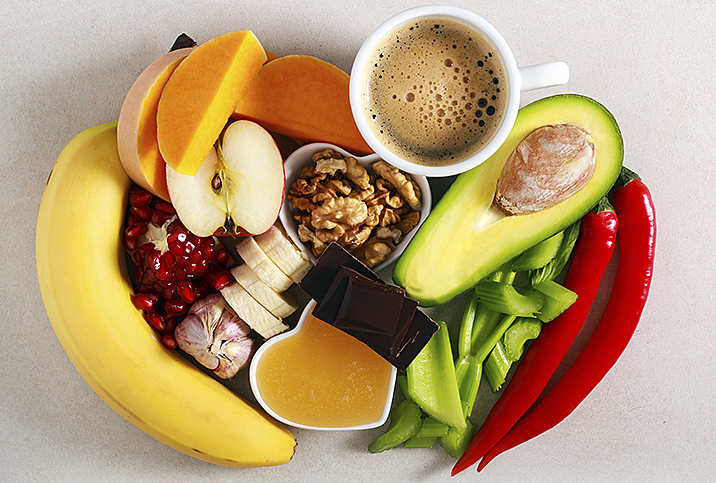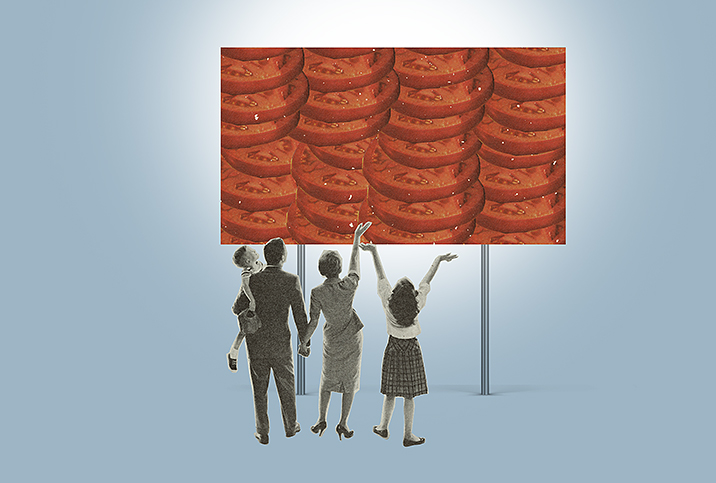What's the Skinny on Intermittent Fasting?
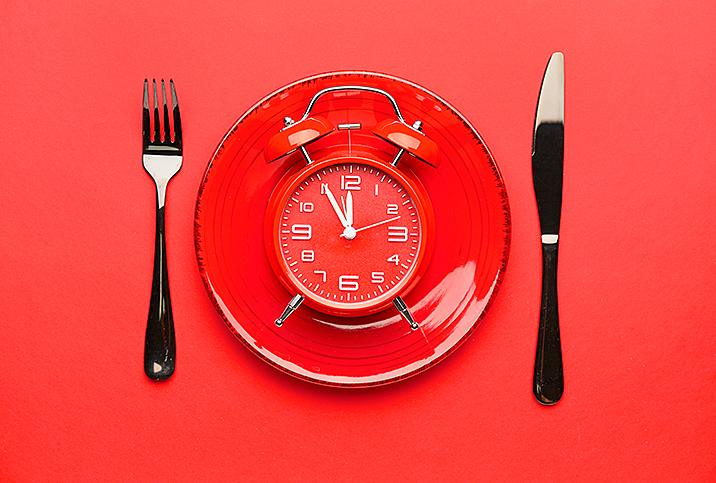
There's been a lot of buzz in the past few years about intermittent fasting and how effective it can be for weight loss, as well as for overall health. In social and regular media, we've heard ringing endorsements from Gisele Bündchen, Jennifer Aniston, Kourtney Kardashian, Scarlett Johansson and Reese Witherspoon, to name just a few celebrities who've made their support public.
In this nontraditional diet, instead of eliminating food groups or restricting calories, the goal is to eat exclusively within designated windows of time. Basically, it takes the traditional idea of having three meals a day and throws it into the trash.
You'll cut down on snacks
According to registered dietitian nutritionist Lauryn White, "Intermittent fasting can be a great tool for individuals looking to lose weight without having to track meals as closely. It gives people more freedom to not focus on counting every calorie and pay more attention to eating windows."
She has seen clients drastically cut down on snacking when following a 16/8 schedule, which translates to a 16-hour fast with an 8-hour eating window.
A common reason people don't find success with mainstream diets is because the discipline required is often unrealistic, which can lead to frustration. If a feeling of deprivation kicks in, bingeing may follow. Many times this pattern produces the opposite of the desired result, causing weight gain rather than loss. This type of behavior can also be dangerous and create a vicious cycle that's hard to break.
For those who struggle with yo-yo dieting, this type of fasting might provide a great option. If you can't imagine giving up sugar and alcohol, this allows you to keep those simple pleasures on the menu. White has "written many meal plans that include sweets and alcohol during windows, with sensible portion sizes."
A few days on, a few days off
Starting any new routine can be challenging, especially when it comes to altering eating habits. If you're not sure where to begin, White recommends "the 16/8 intermittent fast, and following it for at least three weeks to see results. After three weeks, assess if you enjoy it, are seeing benefits and if it feels right for you. It's always best to work with your doctor or a dietitian to ensure you are getting the necessary nutrients."
If you are ready to give it a try, but still hesitant about the commitment, you're not alone. If you work early mornings or like to hit the gym before you start your day, this method might prove more difficult. But if your schedule is a bit more flexible, it could be a great fit.
You can also intermittently fast for a few days at a time and return to eating normally. According to Dale Ann Dorsey, MSN, RNP-C, the idea is "feast then fast." If you go out for a big dinner or indulge in a day of junk food, spend the next two days intermittent fasting and then return to a nutritional, balanced diet.
Intermittent fasting just a few days a week may seem more fathomable than practicing it long-term. However, some have found success in making it less like a diet and more like a lifestyle.
"It is dependent on the individual," White said. "Personally, I stopped because it no longer fit in my lifestyle, as I teach fitness classes throughout the day. Many people can make it a lifestyle and report feeling more energetic and less brain fog. I do not recommend it for certain groups, such as those who are breastfeeding or pregnant. I would also advise individuals with a history of eating disorders, low blood sugar or diabetes to avoid it."
Coffee, too
If you decide to give intermittent fasting a chance, the key to success is preparation. Make sure you have your kitchen stocked with a variety of healthy items you enjoy eating.
The best news is you can still have your morning cup of java, although the recommendation for intermittent fasters is to drink it black or bulletproof-style, which includes adding one teaspoon of both MCT oil (medium-chain triglyceride oil) and unsalted butter. Additionally, you can drink tea both morning and night to help keep cravings away.
Keep in mind: Just because this is your window to eat, that's not an excuse to overindulge. It's important to still eat sensibly, keeping liquor and treats in short supply. If you know you have a big dinner or event coming up, enjoy it, and then try a day or two of moderate fasting. Most importantly, stay hydrated by drinking lots of water.
Don't be too hard on yourself if you end up eating outside of the window. You should always listen to your body above all else.












